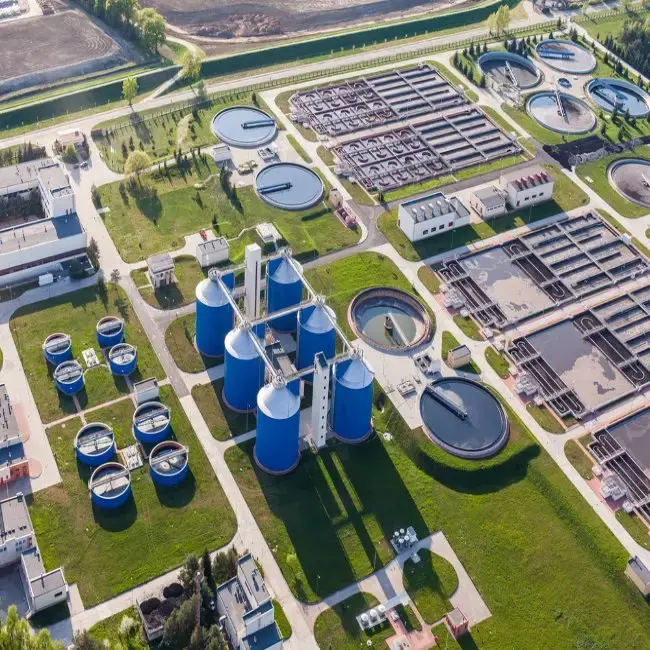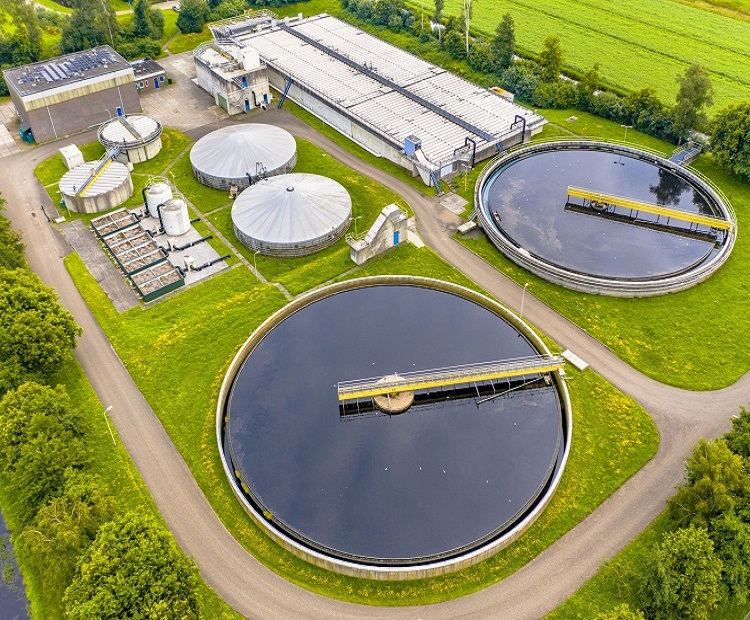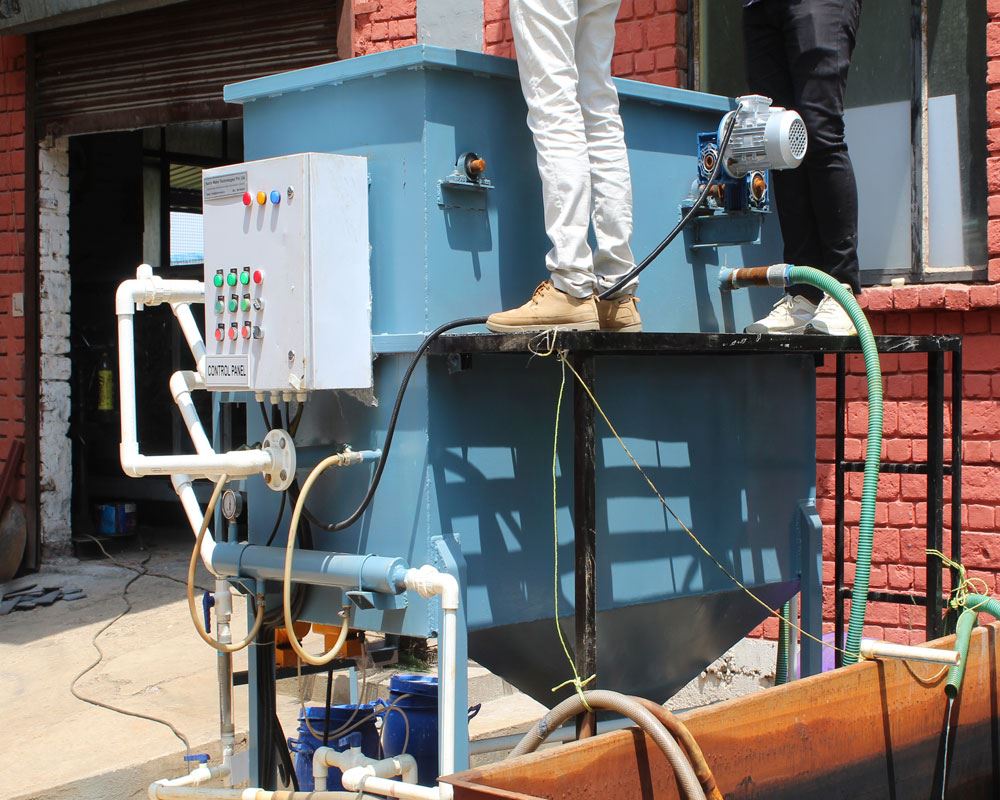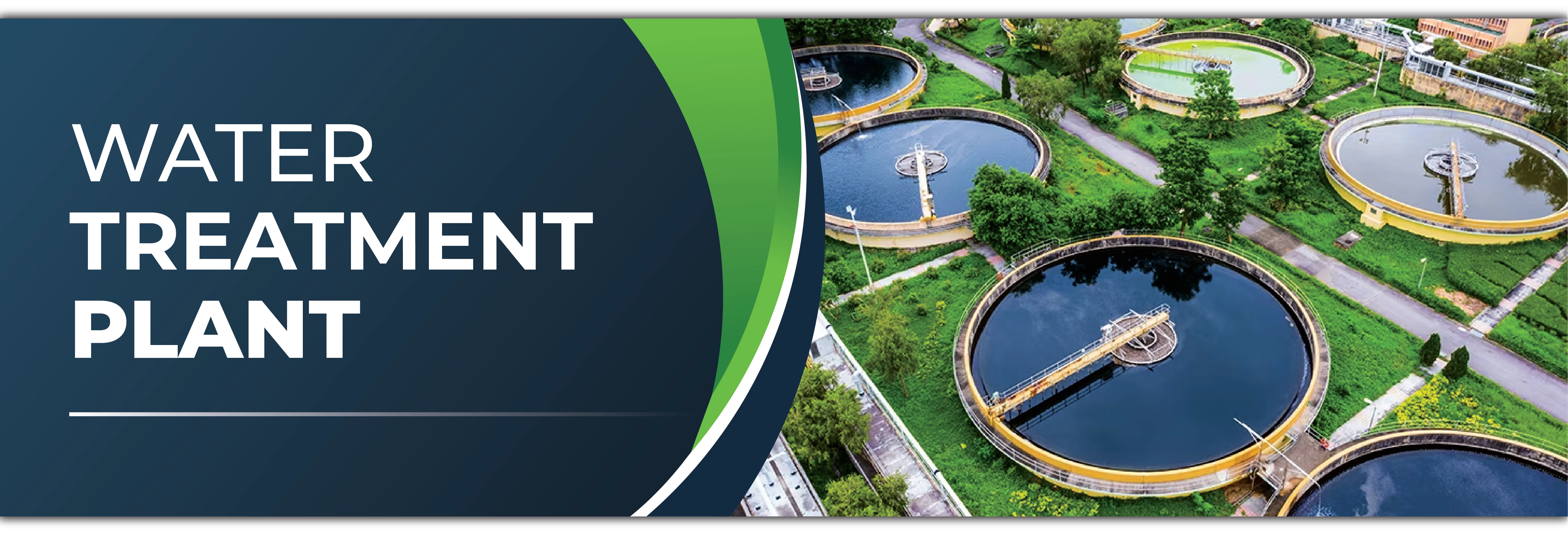What is water treatment Plant?
A water treatment plant is a facility that is used to process water for drinking, industrial, and recreational purposes. It filters and purifies water from its source, such as a lake, river, or reservoir, to make it safe for human consumption and other uses. The plant may include physical, chemical, and biological processes to remove contaminants and make the water suitable for its intended purpose. The water treatment plant is divided into two main sections: the pre-treatment and the post-treatment. In the pre-treatment, the water is filtered to remove any large particles and debris, and then it is treated with disinfectants such as chlorine or ozone to kill any bacteria and viruses. After that, the water is sent to the post-treatment section, where chemicals such as phosphate and aluminium sulphate are added to help remove any metals and other pollutants. The water is then passed through a series of filters to further remove any remaining contaminants and particles. Finally, the water is sent to a holding tank, where the pH and other parameters can be adjusted. The water is then ready for distribution and use. Water treatment plants are essential for providing clean and safe drinking water to the public. They help to protect public health by reducing the risk of waterborne diseases and illnesses. They also help to protect the environment by preventing pollutants from entering our waterways. As a result, water treatment plants are essential for ensuring a healthy and safe environment for everyone.



Types of Water Treatment Plant :
-
Industrial RO Plant:- Industrial RO plants are used to purify water for commercial and industrial purposes. They employ a reverse osmosis (RO) process to remove impurities, bacteria, and other contaminants from water. The RO process works by forcing water through a semi-permeable membrane, which allows only clean water molecules to pass through, leaving impurities and contaminants behind. Industrial RO plants are used in a variety of industries, such as food and beverage, pharmaceutical, and semiconductor manufacturing, to ensure water is of the highest quality. They are also used in water treatment processes, helping to reduce water and energy consumption.
-
Nanofiltration Plant:- Nanofiltration plants are a type of water purification system that uses a membrane with tiny pores to separate contaminants from water. The pores are so small that only certain molecules, like those found in natural minerals and metals, can pass through. The water that passes through the membrane is clean and safe to drink. Nanofiltration is often used in water treatment systems to remove impurities such as heavy metals, bacteria, and other harmful compounds. It can also be used to reduce the salt content in water and improve the taste, smell, and colour of water. Nanofiltration plants are an important part of providing clean, safe drinking water.
-
Ultrafiltration Plant:-An ultrafiltration plant is a water treatment system that removes suspended solids, bacteria, viruses, and other particles from water. It uses a membrane with very small pores to separate contaminants from water. The water is forced through the membrane, and the contaminants are trapped in the membrane, allowing clean water to flow out. Ultrafiltration is often used as a pretreatment process before reverse osmosis, as it can remove particles that would otherwise clog the reverse osmosis membrane. It is also used in wastewater treatment plants to separate microorganisms and other contaminants from wastewater.
-
Demineralization Plant:-The demineralization plant is a process that removes minerals and salts from water. It is used in many industrial processes, such as water softening, to help purify water for drinking, irrigation, and other uses. Demineralization is typically accomplished through a combination of ion exchange, reverse osmosis, and other chemical processes. The process helps to improve water quality, reduce scaling, and protect sensitive equipment. This plant can be used for a variety of applications, including drinking water, industrial processing, and aquaculture.
-
Water Softener:-A water softener is a device that is used to remove calcium and magnesium ions from hard water, making it softer. Hard water contains high levels of minerals such as calcium and magnesium, which can cause scale buildup in pipes and fixtures as well as create a variety of other problems. Water softeners use a process called ion exchange to exchange the calcium and magnesium ions in hard water for sodium ions, resulting in softened water. Softened water is not only better for your plumbing, but it can also improve the taste, smell, and feel of your water. Water softeners are an important part of any home and can save you money and hassle in the long run.
Application of Water Treatment Plant:
Water treatment plants are used to purify water for human consumption, irrigation, industrial use, and recreational activities. The treatment process involves removing contaminants from the water such as sediment, bacteria, viruses, and other harmful substances. This treatment helps to ensure the safety of drinking water, reduce the risk of waterborne diseases, and improve the quality of water for other uses. The process of water treatment starts with the collection of raw water from a source. This raw water is then filtered to remove large particles and suspended solids. The water is then subjected to physical and chemical treatments, such as sedimentation, flocculation, and disinfection, to remove any remaining contaminants. This treated water is then passed through a series of filters to remove any remaining impurities and is further disinfected to kill any remaining bacteria or viruses. The final step of the treatment process is the addition of a disinfectant such as chlorine to prevent any contamination from occurring in the future. Water treatment plants are essential for ensuring the safety of drinking water, as well as for other uses such as irrigation, industrial processes, and recreational activities. They are also beneficial to the environment because they reduce the amount of contaminants released into the environment. Without water treatment plants, drinking water would not be safe, and the environment would suffer from increased pollution










